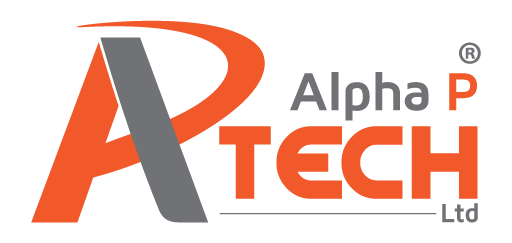What is Thought Leadership?
Thought leadership is the practice of establishing authority in a specific industry by sharing valuable insights, expertise, and innovative perspectives. It goes beyond traditional marketing by positioning a business or individual as a trusted source of knowledge, rather than just a service provider.
Effective thought leaders don’t just promote their offerings—they shape industry conversations, challenge conventional thinking, and provide solutions to complex problems. Through B2B content marketing, keynote speaking, and strategic networking, thought leadership helps businesses build credibility, attract high-value clients, and influence key decision-makers in enterprise partnerships.
Introduction
Establishing thought leadership is one of the most effective ways for businesses to secure enterprise partnerships and position themselves as industry authorities.
Enterprise clients are drawn to experts who offer valuable insights, innovative solutions, and a deep understanding of their challenges. Without a strong reputation, smaller agencies and businesses often struggle to stand out against larger competitors with established credibility.
This is where B2B content marketing plays a crucial role—by consistently sharing data-driven insights, original perspectives, and strategic guidance, businesses can demonstrate authority and earn the trust of decision-makers.
Unlike short-term marketing tactics, a well-executed thought leadership strategy is a long-term investment that enhances brand visibility, attracts high-value opportunities, and makes it easier to build lasting partnerships with enterprise clients.
Why Thought Leadership is Critical for Securing Enterprise Partnerships
Enterprise clients don’t just buy services—they invest in trust, expertise, and proven results. In enterprise marketing, credibility is often the deciding factor in whether a business secures a partnership or gets overlooked in favour of a larger competitor. Thought leadership plays a crucial role in bridging this gap, allowing mid-sized agencies and businesses to position themselves as industry experts, even when competing against well-established firms.
By consistently delivering valuable insights through B2B content marketing, industry reports, and strategic networking, businesses can build the authority needed to attract enterprise clients. This credibility not only shortens the sales cycle but also increases conversion rates by making it easier for decision-makers to justify a partnership.
For example, Velocity Partners, a mid-sized B2B content marketing agency, successfully leveraged thought leadership to establish credibility and secure partnerships with enterprise clients. By consistently producing high-value content, such as their B2B Content Marketing Strategy Checklist, they positioned themselves as industry experts, attracting the attention of Fortune 500 companies. Their reputation for strategic insights earned them recognition in the B2B Marketing UK Agencies Benchmarking Report, where they ranked among the top agencies for content marketing and thought leadership. This visibility helped them secure partnerships with brands like Amazon Web Services (AWS) and Sprint, proving that mid-sized agencies can compete with larger firms when they lead with expertise and compelling B2B content marketing.
A well-executed thought leadership strategy isn’t just about visibility—it’s about demonstrating value, expertise, and reliability in a way that makes enterprise clients want to work with you.
Key Thought Leadership Strategies to Secure Enterprise Clients
Crafting your Niche & Owning a Unique Perspective
Enterprise clients don’t just seek expertise—they look for distinct, innovative perspectives that challenge conventional thinking and provide real value. In a competitive market, businesses that carve out a clear niche and develop a unique thought leadership angle establish themselves as go-to authorities in their industry.
To stand out, businesses need to move beyond broad industry knowledge and specialise in a clearly defined area. This could mean focusing on a specific sector (e.g., SaaS, FinTech, MarTech), a particular methodology (e.g., AI-driven personalisation, customer retention strategies), or a unique approach (e.g., a proprietary framework for enterprise growth). Thought leadership is most effective when it is highly focused and delivers unique insights, rather than simply repeating what is already known.
A critical aspect of differentiation is developing a unique point of view. This means identifying unexplored industry challenges, challenging common assumptions, or providing contrarian insights that force enterprise decision-makers to rethink their strategies. Businesses that consistently deliver original perspectives—through data-driven reports, provocative thought pieces, and expert commentary—naturally attract attention from high-value clients.
Authenticity also plays a key role. Enterprise marketing is built on trust, and audiences respond to genuine insights over generic corporate messaging. By sharing personal experiences, lessons learned, and real-world applications of their expertise, businesses can create an authentic connection with enterprise clients.
By defining a clear niche, offering a compelling perspective, and delivering high-impact insights, businesses position themselves as trusted strategic partners, rather than just another service provider in the market.
Publishing High-Impact Content
To establish thought leadership and attract enterprise clients, businesses must create high-impact content that delivers real value. Enterprise decision-makers don’t engage with generic marketing materials—they seek data-driven insights, in-depth case studies, and actionable industry knowledge to guide their strategic decisions. Businesses that consistently provide this level of expertise through B2B content marketing build credibility and significantly increase their chances of securing long-term partnerships.
Certain content formats consistently perform well in enterprise marketing:
- Original research reports and whitepapers establish authority by offering unique industry insights backed by data.
- In-depth guides help businesses tackle specific challenges and provide step-by-step solutions.
- Opinion leadership articles on platforms like Forbes and LinkedIn position experts at the forefront of industry conversations, ensuring visibility among enterprise decision-makers.
To scale content production efficiently, businesses can leverage AI-powered tools and automation. AI-driven analytics can identify trending topics, while automation platforms streamline content creation and distribution. However, human expertise remains essential in crafting compelling thought leadership content that resonates with high-value clients. A well-executed content strategy for enterprises ensures businesses remain visible, relevant, and influential, ultimately making them the preferred choice for enterprise partnerships.
Leveraging Speaking Engagements & Industry Panels
Enterprise clients trust businesses that actively share their expertise in public forums. Speaking engagements at industry conferences, panel discussions, and executive summits provide a powerful platform to showcase thought leadership and build credibility with decision-makers. By addressing emerging trends, sharing innovative solutions, and contributing to meaningful discussions, businesses can reinforce their authority and attract high-value partnerships.
Opportunities to speak at sector-specific conferences, leadership forums, and trade expos allow businesses to position themselves as experts within their industry. Engaging in webinars, virtual summits, and LinkedIn Live discussions extends reach to a wider audience, while guest appearances on business podcasts and expert roundtables help establish a trusted voice in the market.
Strategically participating in these events strengthens industry networking, enhances brand visibility, and reinforces a company’s reputation as a reliable, forward-thinking partner—ultimately making it easier to secure enterprise partnerships with leading organisations.
Building Strategic Partnerships & Collaborations
Establishing strategic B2B partnerships is a powerful way to strengthen thought leadership and gain credibility in enterprise marketing. Aligning with well-known brands through co-branded marketing helps businesses position themselves as trusted industry players, making it easier to attract high-value clients. When a company is associated with recognised industry leaders, it benefits from increased visibility and trust, reinforcing its authority in the market.
One effective approach is partnering with other companies or industry research firms to produce joint reports, exclusive insights, or collaborative whitepapers. These partnerships not only enhance a business’s reputation but also provide access to new audiences and enterprise decision-makers.
Additionally, Account-Based Marketing (ABM) strategies can be used to nurture relationships with key enterprise clients. By developing highly targeted campaigns and personalised content, businesses can engage the right stakeholders and build long-term partnerships. A well-executed collaboration strategy not only enhances B2B content marketing efforts but also increases the likelihood of securing enterprise partnerships that drive growth and long-term success.
How to Measure and Improve Your Thought Leadership ROI
To maximise the impact of thought leadership, businesses must track key performance indicators (KPIs) that demonstrate their effectiveness in enterprise marketing. One of the most critical metrics is an increase in enterprise leads and inbound partnership requests, as this indicates growing recognition and credibility among high-value clients.
Engagement with B2B content marketing is another strong indicator of success. Businesses should monitor website traffic growth, content engagement, and audience interactions, as these reflect how well their insights are resonating with decision-makers. Additionally, higher brand mentions and media features signal increased visibility and authority within the industry.
Beyond direct engagement, businesses can measure thought leadership ROI by tracking their LinkedIn authority score and domain authority. A rising LinkedIn authority score shows increased professional influence, while domain authority growth reflects a stronger online presence. By continuously refining their strategy based on these metrics, businesses can ensure their thought leadership efforts translate into tangible business growth and enterprise lead generation.
Conclusion
Thought leadership is a strategic, long-term investment that plays a crucial role in securing B2B enterprise partnerships. It’s not about simply producing more content—it’s about creating the right content and ensuring visibility in the right places. Businesses that focus on industry authority, deliver valuable insights, and engage in meaningful conversations with enterprise decision-makers position themselves as trusted partners, not just service providers.
By leveraging B2B content marketing, strategic partnerships, speaking engagements, and high-impact thought leadership content, companies can differentiate themselves and attract high-value opportunities. The key is to be consistent, insightful, and relevant, ensuring that decision-makers turn to them as a source of expertise.
If you’re ready to move beyond strategy and start actively building trust with your target audience, check out our in-depth guide: Building Trust & Credibility with Thought Leadership: A Guide for SaaS Companies. This article dives into how companies can implement thought leadership in ways that drive conversions and long-term partnerships.
Looking to put your thought leadership marketing strategy into action and attract Fortune 500 clients? Schedule a consultation with us today. Alpha P Tech helps businesses craft high-impact thought leadership content and strategies that generate enterprise leads and position them as industry leaders.



